|
In late November our family traveled to Italy. Our trip actually started last summer when out of the blue Jason asked, “Do you want to go to Italy?” I thought about it for 1.5 seconds and gave a resounding, “YES!” I knew the trip would make Christmas all the more hectic because we would “lose” days for activities and shopping, but I also knew how our family needed time to grow and bond. One of my favorite parts of any trip is the anticipation of adventure. I knew that we were flying into Milan and that we would visit a few cities in the surrounding area. Other than that I was leaving everthing up to my travel expert of a husband who had worked out the details. He arranged our lodging and purchased our entry into the Ferrari museum in Modena. I looked up some museums and cultural activities but didn’t book anything specific. When we talked about what we were most excited about, we always agreed that it would be eating. We left Detroit on Thanksgiving Day and after arriving in Milan we set out for Verona. Yes, THAT Verona - the one where Shakespeare’s Romeo and Juliet is set. Despite being exhausted, we explored for a few hours then we grabbed some lunch. Logan picked out a thick piece of pizza and Jason and I chose a pizza to share. I was excited, but at the same time wondering if this heavy meal would leave my stomach overstuffed and add to my exhaustion. I could not have been more wrong. Logan’s thick slice of pizza crust was light and flaky. Ours wasn’t quite as light, but still much lighter than any pizza dough I had ever tasted. We sat in the shop to eat and complimented the chef on our way out. 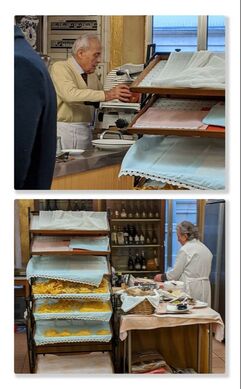 Pop was slicing the meat and mom was making the pasta. Their son was serving tables and their young grandaughter was assisting. Pop was slicing the meat and mom was making the pasta. Their son was serving tables and their young grandaughter was assisting. Every meal was absoulutly delectable, but it wasn’t only the food that left us wanting more. It was the way they eat. Meals are slow. Guests are welcomed into the restaurant and offered a table knowing there is no rush or crowd of hungry diners waiting behind them. Nothing is rushed. Drinks and chips are brought out right away then you choose what to order. We shared appetizers as we sat and looked at the menu options. With food like Parma ham and parmesean cheese you must savor the deleciate flavors. Both are aged and contian all kinds of interesting notes that must be savored to truly appreciate. We chatted with our servers about recommendations and sometimes they had questions about where we lived. The portions were smaller than typical American restaurants but they were far from small. Most of the food is made in house. At The Enzo in Modena we visited a mom and pop restaurant that was literally run by mom and pop. (See photos.) Much of this experience is similar to high-end American restaurants, but we observed (and were occasionally frustrated by) one glaring difference. Cafes and restaurants only took in a certain number of diners then closed. Once a restaurant is full they refuse anyone else. The guests who have been seated can eat and talk the rest of the night. It didn’t take long to notice something else; they have very little food, if any, that is sub-par. American food stores, particularly convenience stores, offer a great deal of food that is meant to be consumed on the go. Most of this food, if we really consider it, is not that great. When is the last time you truly savored the delicate flavors of a fast food meal? Maybe it’s just me, but I usually eat fast food when I’m unable due to time to prepare a meal or we are traveling and it’s the only option. I LIKE what I eat, but when I’m done I rarely feel pleased with how my body feels after a heavy combo meal. Look at the photo above. This is the breakfast display at a rest area along the highway. This is not a fancy cafe. This is a rest area. Notice anything? On one side there are sandwiches made with fresh bread with cured meats, fresh lettuce tomatoes, and onions. On the other there are pastries and these are not previously frozen. (I always opted for the croissant filled with Nutella.) Behind the counter is the coffee bar where the baristas were busy at work making espressos and cappuccinos. After ordering you would receive your food and coffee, but the coffee does not in our accustomed “to-go” packaging. Throughout the small rest area, people crowded around counter-height tables and drank their coffee while talking. They looked at each other in the eye and looked at the food they were eating.
This may seem like a slight difference, but according to medical journals, distracted eating can causes us to find less satisfaction in our food and to eat more than necessary later in the day. What we saw while in Italy was a focus on food that by simple content is deemed "unhealthy" by American standards, but the time we spent eating, the focus we gave to our food, and the miles we walked around before and after eating all made a significant impact on our bodies digestion of the food. Stress - including the stress of "EAT! We have to get yoru work done!" - increases cortisol levels which can cause weight gain among other major health concerns. Trying to remove distractions from eating is harder than it sounds. So much of our eating is done while on our way to other activities or while in front of a screen that as I'm trying to break this habbit in my own life I am really having trouble. It's hardest when it's just Logan and I. Sometimes we play a game to allow us to interact in a special way that sets our dinner time together apart from the rest of the time we are together. This is still a distraction, but not in the same way as more of our brains are activated. The contrast of our relaxing time with the ridiculously hectic Christmas season was glaring. I did my best to keep up without becoming overwhelmed. Ever since returning home we've been cutting back on activiteis that keep us feeling "busy." I like being active and am always on the go, but I don't like the feeling of busy. Busy feels like just doing a lot of things because that is what is expected. Active feels like doing many things because we are in an active season of life. Part of living an intentional life is removing activities that we do “just because.” I don’t care if everyone else is doing it or if we’ve always done it that way. I want to look at all our activities and ensure they are absolutely necessary. I refuse to accept that God’s plan for me or my family is to feel busy, exhausted, and unhealthy. If our life requires us to regularly eat fast food in the car to keep up with everything we are doing we will be reevaluating our choices and dropping a few things. Now, I need to admit an obvious bias and I don’t want to sound as though I am hating on America or others who live a fast paced lifestyle. First, the obvious bias during our Italy trip was that we were on vacation. We didn’t have homework to rush through and we didn’t have to get to work. Our mindset was more relaxed and we were exploring something completely new. Also, the busy American lifestyle has made America a leader among the nations. We take up engineering and technological challenges and succeed where others have not. Unfortunately, that tireless work is exhausting us and leaving us with crippling health problems. My interest in rethinking the pace of our lives is not to stop us from achieving success, but rather to allow us time to rest physically, emotionally, and spiritually. Carving out healthy time is no easy task, but it is very much worth the effort. Are you frustrated by busyness or are you happy with your pace of life? What are your tips for savoring your food as well as savoring the time spent with family and friends?
1 Comment
I remember checking out videos from the library and after finishing them removing the video from the VCR and putting them in the rewinder. To this day, I can't hear, "Be kind" without thinking rewind. Today is World Kindness Day according to the Facebook posts and my morning greeting from Alexa. I am tempted to research how long World Kindness Day has been a thing, who started it, and who is celebrating it, but instead, I’m going to refrain from that extraneous research and go with it. On my recent trip to Seneca Falls, New York, I learned a great deal about kindness and the great impact ordinary individuals can have on the world around them. We arrived in Seneca Falls after sunset. The small downtown area was decorated for Christmas, a gentle snow was falling, and the church bells were ringing out “How Firm a Foundation.” I told my sister that I was reminded of Bedford Falls, the town from It’s a Wonderful Life and she immediately agreed. As we were checking in, the hotel clerk gave us a list of area attractions including the It’s a Wonderful Life Museum. He explained that Seneca Falls is the town that Bedford Falls is based on. Our days there included a visit to the Women’s Rights Historical Park, Elizabeth Caddy Stanton’s home, William Seward’s home, and Harriet Tubman National Historic Park. In each of these places, we noted the influence of major figures like Anthony, Stanton, Seward, and Tubman, but we also noticed the courage, conviction, and compassion of those whose names will most likely never be included in a national park or museum. There were countless women who stood up for the rights of others. As I previously wrote, the subject of women’s rights can be controversial, but here we are talking about rights such as property ownership and the right to remove themselves and their children from a dangerous and abusive husband. Women who were not destitute or in danger took upon them the fight that the others in those situations didn’t have the ability to fight. William Seward was a remarkable man who served with Lincoln as Secretary of State but was responsible for doing so much more. One act stood out as particularly significant during our visit. He sold land to Harriet Tubman including a home that she and her parents lived in after their escape from enslavement. This was after the Fugitive Slave Act and before the Emancipation Proclamation so his action was in direct defiance of federal law, but he believed that it was the right thing to do. Harriet Tubman’s life was full of her kindness to others despite being enslaved and mistreated. Often the word kindness invokes a soft-spoken, gentle manner, but Harriet was kind in a powerful way. She went back into the South thirteen times to rescue her people, ignoring her own safety. She also led troops into combat and freed 750 men, women, and children during a US military action. Retirement was anything but restful. She opened a home for the elderly on her land because the other home for the elderly in Auburn was for whites only. Her home was for everyone. Harriet Tubman exemplified kindness in action. Our last stop during the trip was at the It’s a Wonderful Life Museum. There we learned the beautiful story behind the movie. Frank Capra stopped in the town after reading the short story which would become the movie. There, while receiving a hair cut from an Italian immigrant, he heard the story of Antonio Varacalli. In 1917, Antonio was a young man working to save up money to bring his family over from war-torn Italy. He watched a woman jump off the bridge in an attempt to commit suicide and jumped in to save her. He succeeded in saving her but lost his life in the process. The town rallied together and collected enough to bring his family to the area. Capra changed the ending of the movie to include the town rallying around George and set the movie in a place that looked like Antonio’s town. Acts of kindness can be small or large. They can be quiet or they can be bold. This “World Kindness Day” rewind your thoughts to some of the people who have influenced your life. How has their influence changed you? As Clarence observed, “Strange, isn't it? Each man's life touches so many other lives. When he isn't around he leaves an awful hole, doesn't he?” Today, don’t leave a hole. Get in there and influence someone. Maybe a child, maybe the person behind you in line at Starbucks, maybe a future generation. Capra modeled the bridge in the movie after this bridge in Seneca Falls.
I’m a huge fan of Far Side by Gary Larson. If you aren’t familiar with it, it’s a syndicated comic that was usually one pannel. The figures are distorted and the humor is quirky. One that has stuck with me was titled “Classic Conversation Stoppers.” The panel is divided into four squares and depicts four men talking to guests. Each of the men is saying something that is guaranteed to end a conversation. My favorite is the guy saying, “‘Contagious? Contagious?’ I asked my doctor. ‘Realy contagious,’ he tells me.” Insert awkward pause. Have you ever experienced something like this? You say something and people respond with awkward silence. Last year I created a presentation about World War I to commemorate the 100th anniversary of the end of the war. After completing that I decided to work on a presentation commemorating the 100th anniversary of the 19th amendment to the Constitution, which grants women the right to vote. I thought World War I had been tricky to investigate, but nothing could have prepared me for the mess that I’ve found during my study of the women’s suffrage movement. In my research, I’ve studied Biblical anthropology - the study of humans as they relate to God, the history of women in the United States and Western Culture, and the philosophical foundations of the feminist movement. Phew! I’ve read about Upity Women of Medieval Times, Wild Women of Michigan, 12 Extraordinary Women of the Bible. I’ve read The Women’s Hour, Roses and Radicals, and (I truly loved this one) Cinderella Ate My Daughter. Relating to business I’m reading Lean In and, as a counterpoint, Lean Out. I’m intrigued and immensely enjoying this research, but all these viewpoints and counterpoints leave my brain a tangled mess. When my thoughts become tangled, I find the best method of unraveling them is talking. I’ve come up with some of my best party planning ideas when talking to the cashier while at the supermarket checkout. (Probably why I’m not interested in curbside pick up or grocery delivery.) In the past few months, I’ve learned that the phrase, “I’m studying the history of women’s rights,” is a classic conversation stopper. People become uncomfortable and shift around looking for an out. One person abruptly stated they had to leave and ran away. I think most people are afraid of getting involved in a controversial conversation because of the tension in our current culture. Viewpoints collide and emotions run deep, but I believe that this is a very important and vital study. I keep typing and deleting as I’m trying to explain further, but I’ll never be able to fit everything I want to say in this post. I’m going to state a few truths I’ve discovered, and leave it at that for now.
That’s all I’m going to say about this for now. I can already feel the discomfort and I can hear the, “Well, I don’t know what she means by that,” running through your mind. Feel free to comment below or message me if you want to talk more about this and look for future posts about women’s rights. Wait! Where are you going? I need someone to talk to about this! Tomorrow my sister and I head out to visit the Women’s Rights National Monument. It is in Seneca Falls, New York and is the sight of the first Women’s Rights Convention where the suffrage issue (women voting) was first publically proposed. As I research this topic, I feel that visiting this monument will help me gain a deeper perspective on the issue and the time spent with my sister will help me unravel my thoughts. Follow along on my Instagram (@edy2207) story for an inside look at our adventure.
Last week in my post about summer break, I emphasized that school does not have a monopoly on learning. Summer can be all about the best kind of learning. The kind of learning that expands the mind. The kind of learning that leads to interesting places and people. The kind of learning I hope Logan will continue with for the rest of his life. There are two parts of our summer bucket list this year. I want to visit some interesting places and try some fun things with Logan, but I also want to work organizing some areas in the house, improving math skills, and strengthening language skills. When considering academic work over summer break, I like to think of it as bonus time. We had too much homework for me to add on more during the school year so summer is the perfect time to learn a few things that will help with next year. I also want to play some fun games that teach as we play such as the periodic table battleship and the Pringles ring. The second part of the list is all about the go. I'm currently obsessed with my National Park Passport book and I want to collect several stamps available in our area. Detroit is part of the Motor Cities National Historic Area so several museums offer the National Park Passport stamp. On the list below, the areas with the available stamp have the green letters next to them identifying what they are. (Key below). Will we make it to all these places? Absolutely not, but we will have fun trying and often we get to them during days off school and weekends. Without further ado, here is the Gies 2019 Summer Bucket List. Visit Niagara Falls Visit Theodore Roosevelt Inaugural NHS Take piano lessons Visit Whiting Forest Clean out guest room closet Visit River Raisin NBP Visit Derek Study Men and Women in the Word with She/He Reads Truth Learn about the law of diminishing returns with ice cream Visit Cranbrook Gardens Go to a baseball game Make milkshakes Host a class party Day camp at the Henry Ford Visit Stahls Automotive Foundation NHA Ride bikes to downtown Rochester Family game night Pick Blueberries Visit the Edsel Ford House and Gardens NHA Play the license plate game Visit Cambridge Junction Historic State Park NHA Build an egg drop Visit the Detroit Zoo Read and complete Big Life Journal Visit the Toledo Zoo with Fougeres Watch fireworks Family movie night Visit Caseville Star gaze Memorize the definitions for the parts of speech Visit Sleeping Bear Sand Dunes NL Jackson Pollock Painting Visit Yankee Air Museum NHA Play periodic table battleship Visit the GM Renaissance Center NHA Build a LEGO fortress Visit Meadowbrook Hall NHA Visit Michigan Military Technical & Historical Society NHA Make a Pringles Ring Nerf Games Plant giant sunflowers Read a biography of Bob Ross Finish London puzzle Visit the Detroit Historical Museum NHA Finish toy puzzle Visit the Detroit Institute of Arts NHA Memorize times tables Read Treasure Island
We're ready to grow and go! NHA - National Historic Area, NBP - National Battlefield Park, NHS - National Historic Site, NL - National Lakeshore
Are you excited about summer break being right around the corner? I am. (Notice my excessive use of exclamation points.) I love summer. I'm not just talking about the season itself, although I do love that - I'm talking about the long break from school. Summer is time to take a break from school. Summer is not the time to take a break from learning. Summer is the perfect time to learn without the pressure of tests and the responsibility of homework. It's the perfect time to visit museums and parks. These experiences are extremely important because by exploring and experiencing, children lay the groundwork for their classroom experience. Here’s an example. At some point in their science education, your child will learn about the life cycle of a frog. I remember learning about this as a student, but I didn’t have to memorize it as a student. Why? Because there was a ditch in the front yard of the house I grew up in. Every year frogs would lay eggs. Once the tadpoles emerged we would scoop them into buckets and check their progress. It was play. Gloriously messy, sometimes muddy play. But then when I got to science class the life cycle was something I knew. I had watched. I had observed. The teacher had new information that I didn’t already know, but she had a shelf to place new information onto. My existing knowledge allowed my understanding to be deeper and more lasting than the student who had never seen a tadpole. Often our school system becomes adversarial. Students work hard NOT to learn the information the teachers are tasked with the responsibility of forcing the materials into them. This push back doesn’t usually happen until middle and high school, but the mindset begins as early as elementary. We make a critical mistake when we equate school with learning. Why? School does not have a monopoly on learning. It CANNOT have a monopoly on learning. This is NOT to say that students don't learn in school but when we limit learning to school we limit our children’s mindset and limit their growth. Learning should be a lifelong pursuit. Adults calling themselves a life long learner has become popular. Why can't we let kids embrace that too? Oddly enough when I say stuff like this is it is usually the adults who tell me that kids don't want to learn, NOT their kids. This disturbs me. Learning is awesome. It is fun. It is something that the mind embraces and takes pleasure in. The brain releases a dopamine response when a new fact snaps into place. (Imagine that feeling when a puzzle piece clicks into place.) When your brain has an “ah-ha” moment your brain releases pleasure hormones. When kids make a connection between something they learned in school and something they already know, their brain releases a “reward” for their effort. Not interested in "teaching" your children this summer? Afraid that you will get stuck or not know what to say? Here’s an example of the type of learning and teaching I am talking about. Many kids have had the experience of trying to connect toy trains. Sometimes the trains won’t connect. They may get frustrated, but they usually figure out that the key to success is to turn the train around. It works! Cool now they can play. When they get to science class and learn that magnets have a north and south pole and connect it with their memory, their brain rewards them for that connection. Those students who have been trained to recognize the moment a connection happens can gain an even greater response. Training to recognize this is as simple as noting when it happens and cheering. Older students who are interested in Greek Mythology will love making connections about their secular reading and the experience of Paul in the book of Acts. Read Acts 17:16-34 (Paul’s sermon from the Aeropagus.) Those Paul is speaking to believe in and worship the gods we read about in stories. In verses 24-25 Paul makes specific reference to the stories of mythology. “The God who made the world and everything in it is the Lord of heaven and earth and does not live in temples built by human hands. And he is not served by human hands, as if he needed anything.” The Greek gods constantly needed help from heroes who were demi-gods. Without Heracles, Jason, and Theseus the gods would be in desperate straights. Paul is remarking that the one Creator God who is over ALL, not just the wind, seas, seasons, medicine, etc., doesn’t need human heroes to save him. He is omnipotent. When students connect these two things (the Bible and Greek mythology) they get very excited and the discussion is usually a lively one. Even students who say they “hate” learning take pleasure in learning about things that they are interested in. Summer and other breaks from school are the perfect time to leisurely explore their own pursuits. I recommend exposure to a wide range of activities that will eventually coincide with their classroom learning. Some areas are richer in learning opportunities than others. I have been working on my Southeastern Michigan page and hope to add several more places this summer. Check it out and comment with places you would add. There is no way that you will be able to experience everything that your child is going to be learning about, but you can participate in a variety of things that will set them up for future success. Next week I will release our full summer bucket list. We are planning on visiting several places that are recognized by the National Park Service as the Motor Cities National Heritage Area as well as River Raisin, a National Historic Battlefield. (All within an hour or so of our house.) Subscribe using the form below to follow our adventures and learn more about fun activities that will help your child's summer be both fun and constructive. A Note About Video Games: Learning isn’t the only way to receive a dopamine response from the brain. Video games flood the brain with a dopamine response, but rarely are real skills gained and often the cost/benefit ratio is out of proportion. Alarmists love to report that kids are addicted and scare parents with statistics about the dangers of gaming. This sells stories and gets people to click, but it isn’t necessarily true. Video games aren’t all bad and can be a good way for families to have fun together (Wii) or kids to learn about the challenges of running a city (Sim City). Think of it this way - taking the family out for ice cream can be a fun way to bond and have fun. It’s a good thing. Eating ice cream for breakfast, lunch, and dinner is excessive and detrimental to your health.
If this were paper it would be super shaky right now, but thanks to the convenience of technology you get to read something smooth and spell checked. Also, I'm not sure how I would get you my paper copy so let's just give technology a collective, "Huzzah!" I am writing this from the bus as we travel to Washington DC. The we in the previous sentence is my son and the rest of his 6th grade class, several parents, their teacher, and a few others. We arrived at the school at 4:00 am and left by 4:25 after taking attendance and picking up sack lunches for today's drive. Our first sight-seeing activity of today is to visit the Air and Space Museum in Langley, VA.
It is currently 6:50. From the time we left until 8:00 am the teacher has asked us to observe a quiet time for those who want to sleep. This is a great idea because it is hard getting up super early and sleep makes the drive pass quickly . . . unless you're like me and can't sleep on a bus. So far I've listened to some of Sarah Vowell's Lafayette in the Somewhat United States and watched the sunrise. Shockingly, as I write this I'm not feeling nauseous. Motion sickness has plagued me since I was a child. When I was little, I so wanted to read in the car. All of the sudden I would be making retching noises and my mom would be scrambling to find some kind of receptacle for the partially digested remains of my travel snacks and/or last fast food meal. Every time, without fail, she would be yelling, "Have you been reading? Have you?" At this point, I would be holding my hand over my mouth trying to hold "it" in and violently shaking my head. She would ask again but this time it was no longer a question, "You have been reading, haven't you?" Again, I would protest my innocence all while in great need of that bag. Usually, I was lying. Sorry, mom. I was board. I can't help but read when there's something in front of me. Needless to say, she tried her best to find other activities that entertained me while keeping me away from reading and she was good at it. Taking road trips to visit family all over the United States was a staple of my childhood. Because TVs, VHS, and DVD players in vehicles preceded my time, my mom had to find other ways to occupy me. First, I had my cassette player with all my Patch the Pirate, Disney, and Sesame Street sing-a-long tapes. (Oh yeah!) She also had travel bingo and fun car games for me to play PLUS we would play the alphabet game and search for letters of the alphabet on signs to pass the time. Do you know how to play the alphabet game? It goes like this: The first person says, "My name is A___ and I'm going to A____ with a load of a_____." The next person takes the letter B and so on until you go through the entire alphabet. I don't know how many rounds of that game my poor parents went through before tiring of it, but I just loved it. Our other drive staple was playing the license plate game. Everyone works together and we search to find as many state license plates from beginning to end of trip. At the time, I would have loved the opportunity to watch a movie to pass the time. The drive to Chicago, which we did often, would have been a two movie trip. But looking back on my road trip experiences, I'm so thankful we didn't have that technology. True, I was often board. During that time I would use my imagination, interact with my family, and observe the scenery around me. I would look at houses and wonder about the people living in them. It made me notice the world around me. On this trip, Mrs. Black has requested that students refrain from using technology so they can focus on interacting with each other and absorb the trip. I love this policy and recommend it for school trips. Embracing my mom's mad road-trip skills, I've brought a big poster sized list of the states to check off for the license plate game, Mad Libs, card games, travel bingo, and a weaving project. Mrs. Black also provided a packet of activities for each student. Logan looked at it with vague indifference, but, of course, I squealed, "Competitive travel bingo! Yes!" There may have been some odd stares from parents around me. Get used to it, y'all. I'm easily excited. (If you are interested in these kinds of games, she told me she found them at Mom's Minivan.) I'm so thankful for the opportunity to travel with my son and his class. I know we will have a fantastic time visiting the nation's capital, but will also I cherish the time spent building friendships and making memories too. So for now, I'm going to sign off of my computer and get to some good, old-fashioned road tripping fun. If you would like to follow our journey you can follow my story on Instagram @edy2207. Confession: I have been working on this post for a few days now. I planned to talk about the word hubris, and maybe I will someday, but after reading and writing for several hours, I have decided to go in a completely different direction. Has that ever happened to you? I thought I knew what I was writing about but as I studied and thought I realized that the material was diverging from my original thoughts. This feeling, though somewhat discombobulating (another great word), is what I love about learning. I was not incorrect in my original direction, but the opportunity to learn something new took me down an intriguing path. Come walk with me.
My grandfather was an artist by trade and along the way, he collected some interesting books about art. One of them is called Shepp's Photographs of the World. The copyright is listed as 1892. The good old days of 1892. Everything was better back then. Well, maybe not everything. There were no antibiotics. The country treated people of color with the understanding that they were lesser citizens. The life expectancy was 48.4. But it was an exciting time. Things were looking good for the United States. Grover Cleveland was fighting the spoils system and we were had not yet fought in the Spanish-American War so there was no need to, "Remember the Maine." The country was healing from the Civil War and figuring out a new path as a united nation. Rapid changes in the world filled people with wonder and optimism. The Bessemer process had revolutionized the steel making process and railroads were connecting people in ways that had previously seemed unimaginable. The publication date is almost the end of the Gilded Age, which I just learned because I Googled it, was named that because it looked like a Golden Age, but things underneath were less than perfect. (Thank you Mark Twain and Charles Dudley Warner for that excellent description.) Side note: I had learned that it was the Gilded Age but never grasped the meaning behind the term. Interesting. Today's Word: Limn One syllable. Pronounced [lim]. verb. Defined in the OAD as to depict or describe someone or something in painting or words. As I said, this word wasn't my first choice to write about, but as I was writing about Shepp's Photographs of the World I was quoting from the preface and came across this word which I had never taken the time to look up. Let me continue with my explanation about the book and you'll see the word come up in context. My favorite part of Shepp's Photographs of the World is the preface. Most of the book is photographs of monuments, cities, and natural landmarks. There are some photos of famous works of art. The premise as explained in the preface is that few people will ever be able to travel around the world and see all the wonders it has to offer and even if they can travel, they won't make it to all the places to see all the things. ". . . a trip around the world, in the literal sense, would reveal to the traveler only a portion of its scenes of interest. Many of its greatest wonders lie off the line of circumnavigation and require to be reached by special journeys. To really see the world, one must explore it, seeking out spots to the north and south at every stage of the voyage " They mention that a newspaper reporter outdid "Mr. Phineas Fogg's famous flying voyage of eighty days," but continue on saying that a trip at this pace leaves little time for any sightseeing. The preface continues, "Fortunately for the public, the perfection of the art of photography . . . have rendered it possible to bring the whole world home to anyone's door in a manner heretofore unknown. The panorama of the world has been limned by the sun to such an extent that there is no longer an excuse for our remaining in ignorance of its most inaccessible or remote marvels. We can surround ourselves, in our own homes, with the scenes which intrepid and adventurous explorers have taken for us, often at the cost of their lives, and visit the great historic sites, the centers of strange civilizations, as well as the habitations of barbarous and savage tribes, without moving from our own firesides." Since first reading it, I've loved the part where it says "the perfection of the art of photography" because this is 1892. Photography was far from perfected. But today I noticed that word limned and I realized that they are saying that the sun has allowed for the depictions of these great places. The sun. Because photography is light [photo] writing [graph]. Aaaaahhhhhh!!! Isn't that so cool!?!?! Looking through the book I see recognizable monuments, but the descriptions are no longer accurate. For example, on page 159 the Eiffel Tower is described as "being the loftiest monument in the world." In the photo of the Arch de Triumph, there is no Tomb of the Unknown Soldier because that wasn't built until the Great War. The Brooklyn Bridge is described as "by far the largest suspension bridge yet constructed". After perusing the pages and exploring from my house, I remember the admonishment in the preface to the readers of 1892 that there is no longer an excuse for remaining ignorant of the world around them because photography made the world accessible. If the 1892 audience has no excuse where does that leave the 2019 audience? I don't believe that photography or cinematography have been perfected, but they are beyond impressive. Most of us have access to the world at our fingertips. (If you have access to Google Earth then this is you.) There are also excellent documentaries and shows about the world that allow us so much access to the incredible and awe-inspiring. So as I close today, I give you (and myself) the same admonishment the author gave in 1892 - Surround yourselves with scenes which intrepid and adventurous explorers have taken for you. Visit the great historic sites, the centers of strange civilizations, as well as the habitations of barbarous and savage tribes, without moving from your own home. Travel is wonderful and I encourage it, but a lack of funds to travel does not limit the amount you can expose yourself to the magnificent world around you. Lately, I’ve been trying to define some goals and gain some focus. I'm living digital, but there must be more. As I’ve said before defining my interests has always been a struggle, but nevertheless, I’m trying. I still want to explore other topics, but why? Why is bouncing all around and being random so prevalent in my life? The more I think about it the more one word comes to mind. Experience. I love to experience things AND I savor opportunities to engage others in new experiences. Experience is crucial to understanding. This is true of everything. How can someone understand the need for kindness? By experiencing kindness. How can someone understand the delicious flavors and sensations of a home cooked meal? By eating a home cooked meal. How can someone appreciate the joy of receiving a letter in the mail? By receiving a letter in the mail. Imagine this: You want a friend to visit your favorite restaurant with you. Which of the following activities would most likely get them to understand and appreciate your love for the restaurant?
Understandably, it would be difficult for our kids to experience everything they learn about in the classroom during school hours. Complications would be numerous and be challenging to overcome. My experience in the classroom tells me that this isn’t a practical expectation for teachers or administrators to organize. Proving children with experience cannot be one more thing thrust upon the classroom teacher to complete. Students need to spend time outside with their friends, with their families, and with their community. Visit an area museum, walk through a forest, tour a city. Many of these activities are free and require only small amounts of preparation but pay off in the opening of the child’s world with experiences that add value and depth of understanding. As I walk through schools, stores, and restaurants, I cringe to see the large numbers of children hovering over their cell phones or iPad with their heads down looking into a screen. I worry that their worlds are shrinking. Experts tell us that being able to look up anything on the internet makes us less likely to do so. What’s that capital of Turkey? Who cares? I can look it up when I need to. (Read: The Shallows: What the Internet Is Doing to Our Brains) That intellectual procrastination inhibits the curiosity that would stimulate the brain with the knowledge that Istanbul is a fascinating city with a intriguing history that would totally be worth looking up and remembering. Why are we so willing to allow our children to become absorbed in screens? They are safe. They are quiet. They are under control. I hear you. When we are out to dinner it is very easy to hand over a screen to quiet the child with me. They become absorbed in a game or video and I can enjoy my meal and time with friends. I get it. Sometimes it can be necessary, but we take advantage of it. Walks through the forest are messy. A virtual exploration of a Minecraft world is clean and tidy and leaves me with zero extra laundry. Trips to museums take time away from my time to work, clean, and relax. A day spent watching TV leaves me plenty of time to get my stuff done. So what am I saying? Live in some screen free world and exhaust yourself entertaining your kids? NO!!! We need to live a life of intention that allows time for enriching activities. Find a forest and explore. You don’t need to know what to look for. Just play. Dig. Look for bugs. Listen for birds. Then go home. Later, when their teacher is trying to teach them about a forest ecosystem they will hook the information onto their previous experiences and grasp the material that much easier. Go to a museum. Find a free one so you don’t feel compelled to get your money’s worth. Ask questions. Use your imagination. Laugh at something if it looks silly. Later, those experiences will provide a framework for your child's teachers to build upon and develop. This link will connect you with places I’ve visited and recommend. If you have any questions or would like more information on something please comment below. Let’s enrich our lives and the lives of those around us with experiences that provide depth and meaning. If you enjoyed this post, please "like" it and consider subscribing to my blog. You can read my post about collecting experiences here.
Our summer adventures have been keeping me busy and unfortunately away from my computer. I have a lovely Tiffany blue notebook that is full of ideas and thoughts that come to me as I travel, but getting those thoughts onto the blog has proved to be challenging. Hopefully I can soon work past my technical difficulties and learn to work remotely. Technology is not always my best friend, but it allows me to do this, so I will persevere. In the second full week of June we visited Paris. My husband, Jason, headed there for work and Logan and I tagged along as tourists. Travel with him is something I do as often as I can because it gives me insight into what his business trips are like and the stress he is under. As he travels we often hear comments from people teasing about his fun jet-setting life, and if I didn't understand I could be jealous. He has traveled throughout the United States and internationally to Canada (Quebec), France, Belgium, Germany, the Netherlands, India, and China on business. What I learn when I travel with him is that business travel involves little time to adjust times zones, working at hectic paces in strange places, and little chance to enjoy the culture or scenery. Logan and I explored all over Paris, but Jason worked most of the trip. We did have one day together and some time at night for adventures as well. Sometimes he gets a break and is able to explore so I don't begrudge him that a bit. We took every minute he could spend with us and thoroughly enjoyed our time together. Have you heard that Parisians are rude and difficult? Paris is just like any other place you will visit. You will get what you look for. If you seek beauty and culture it is to be found in spades. If you expect the people to be rude and the tourists obnoxious you will find plenty of that too. On a past visit to Pairs we encountered a gracious host at a restaurant. He showed us around his establishment with pleasure, introduced us to the chef, and told us about himself. Among other things he had studied at Notre Dame in South Bend, Indiana. His English was fluent. He offered us the French menu because it was better worded and offered to explain the options rather than just handing the English menu. We happily obliged and had a marvelous time. Later, another American couple and their friend came in. They were abrupt and asked for the English menu. Our waiter spoke French to them and they spoke about him as though he couldn't understand them. It was truly painful to watch. They expected to find a rude Parisian and they found one. We expected to find a kind Parisian and we found one. The city is what you make of it. We left Paris as different people than the people we were when we arrived. We learned and grew in ways that only come trough experiences traveling. What are your favorite travel destinations for business, personal, or missions? I will definitely have more to say about Paris later, but for tonight, I must say bonne nuit.
|
"A jack of all trades is a master of none, but oftentimes better than a master of one." Archives
May 2020
Categories
All
|
||||||||||
AdventuresGet in Touch |


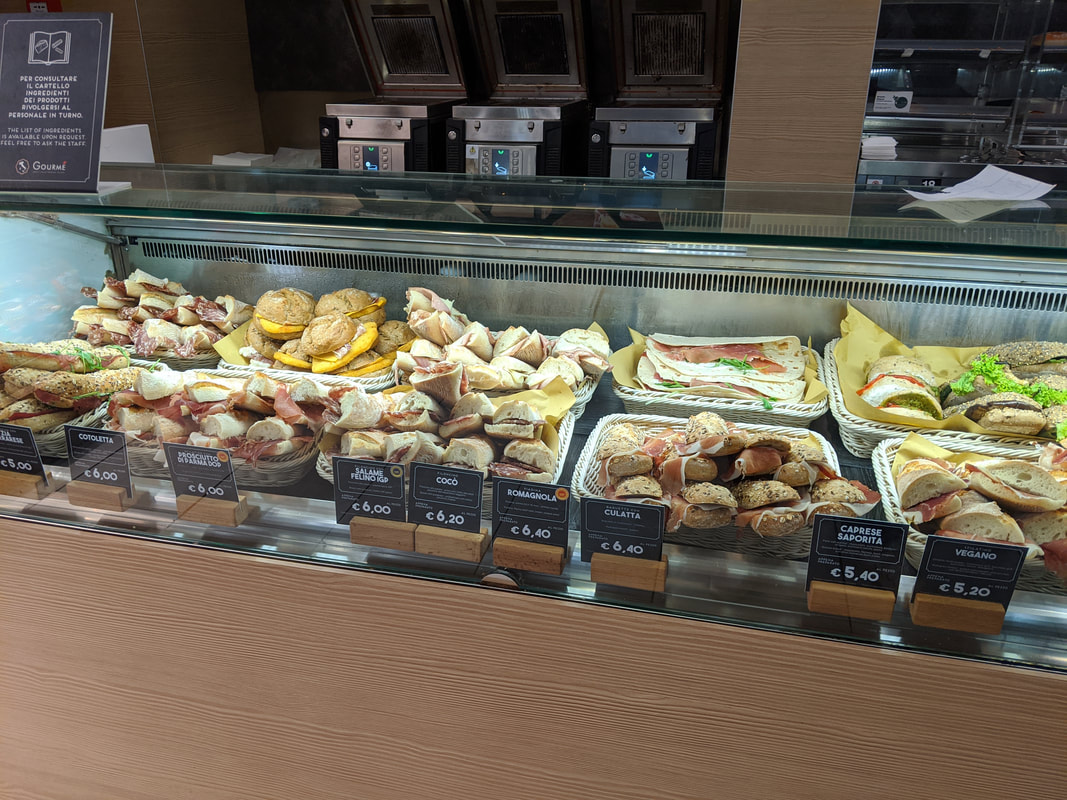
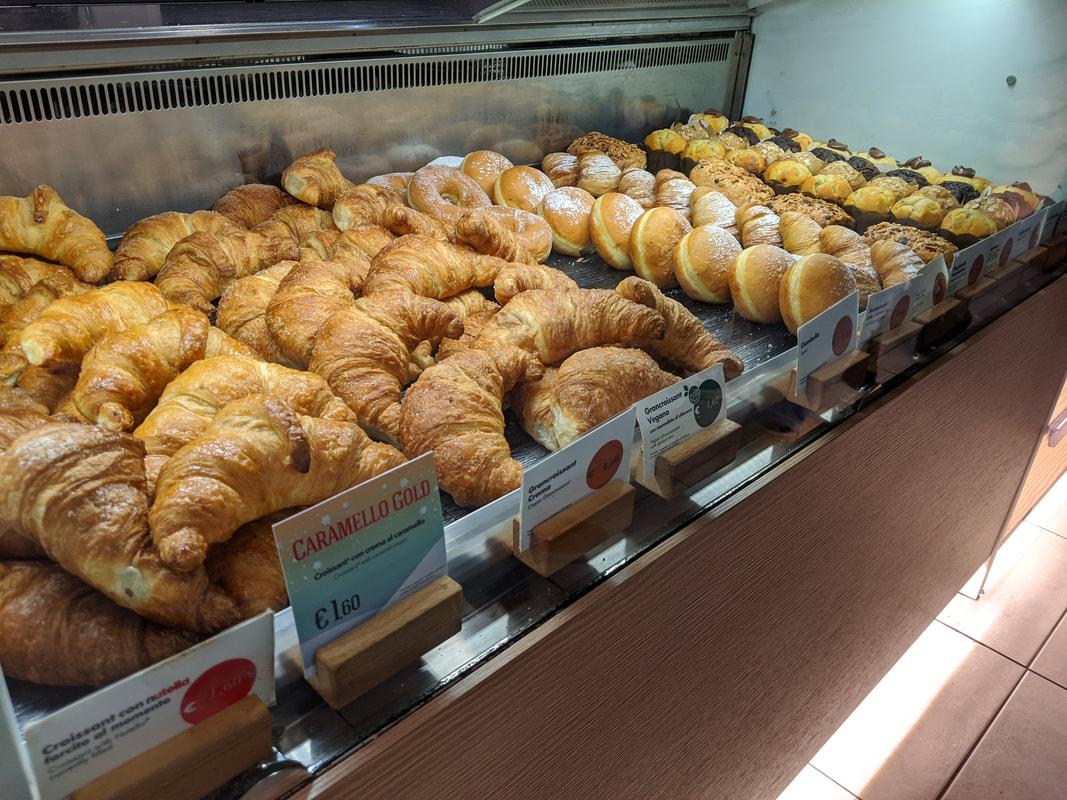
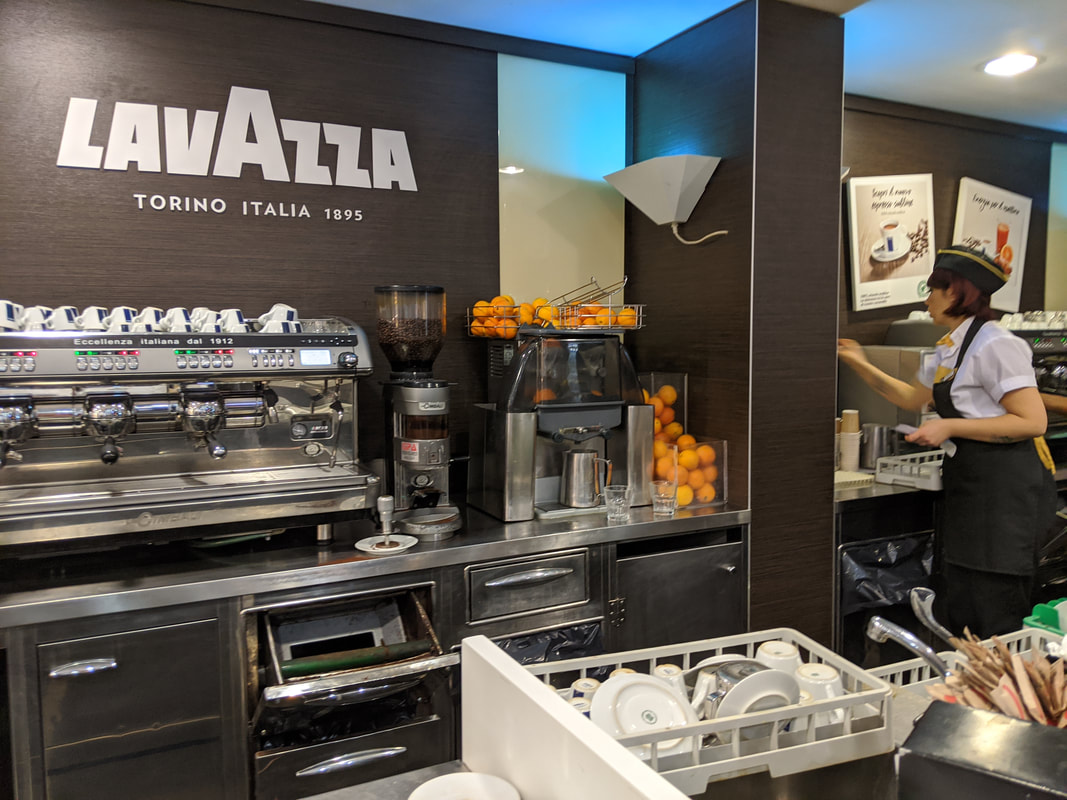
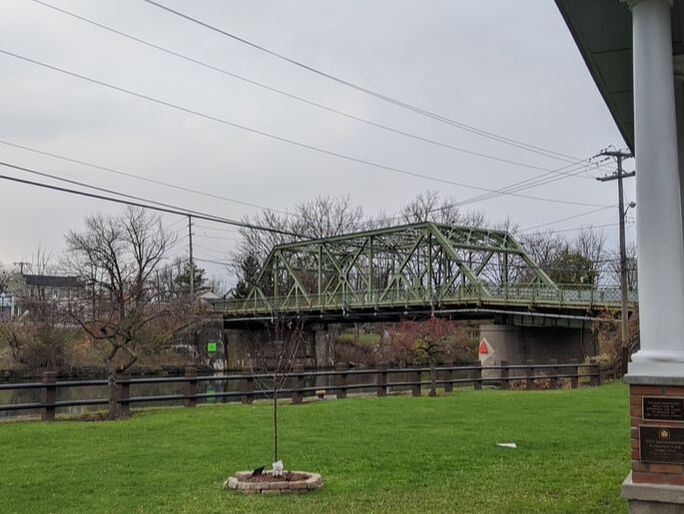
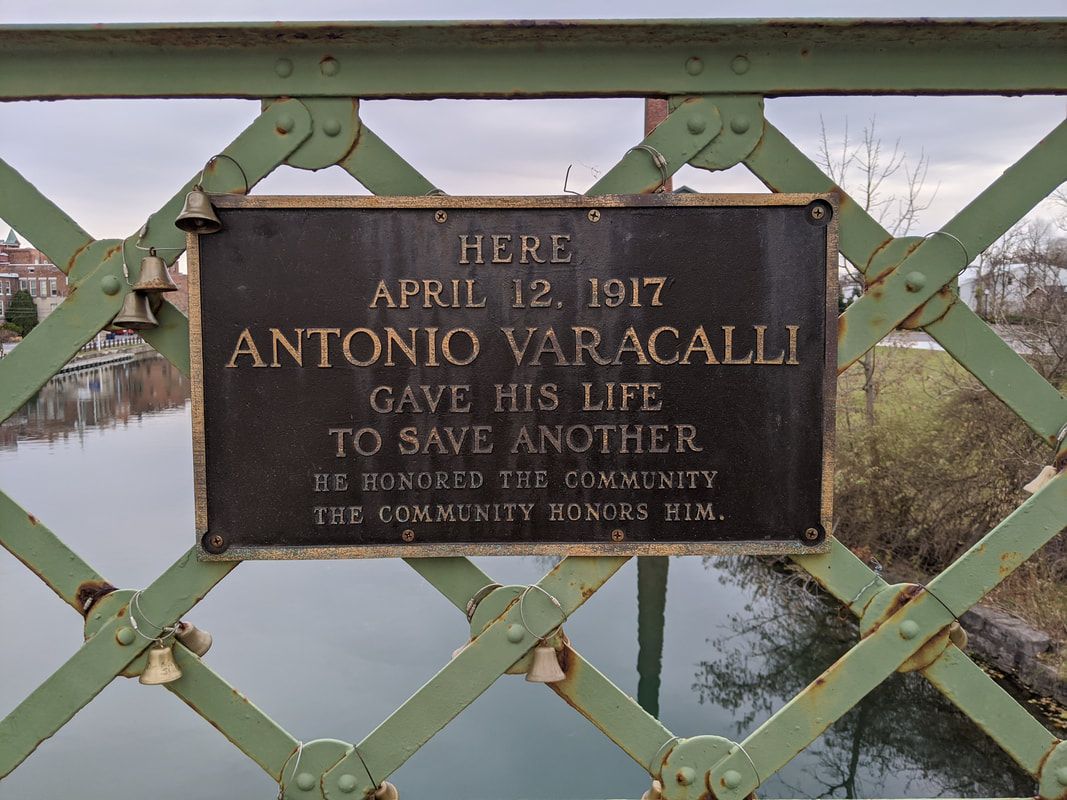

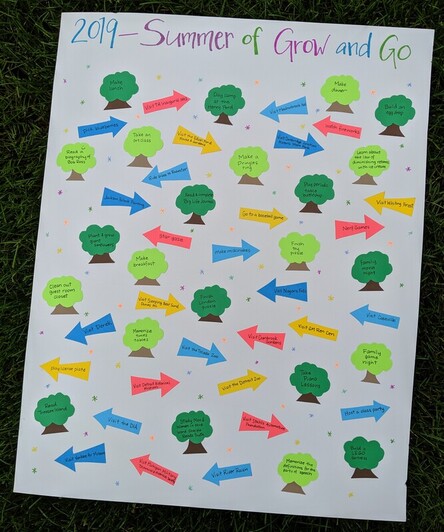
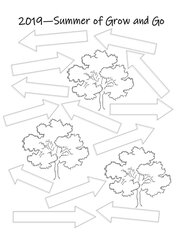


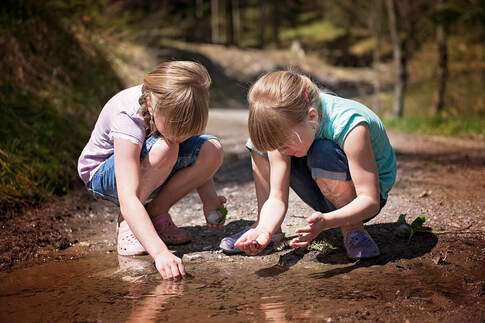
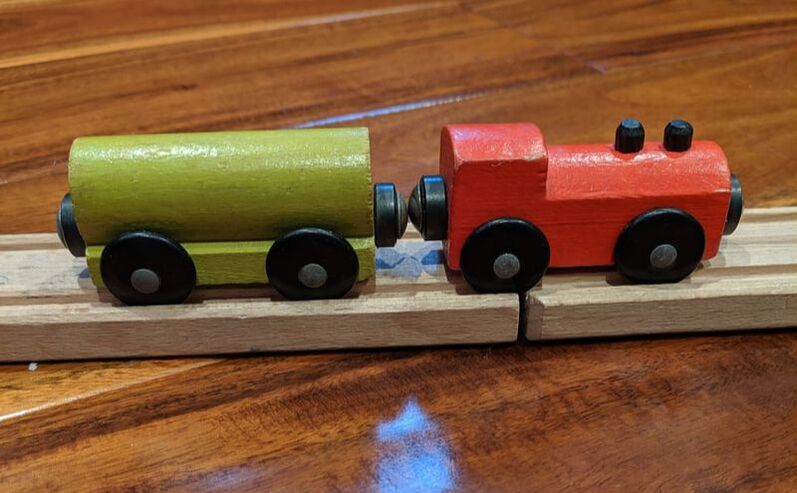
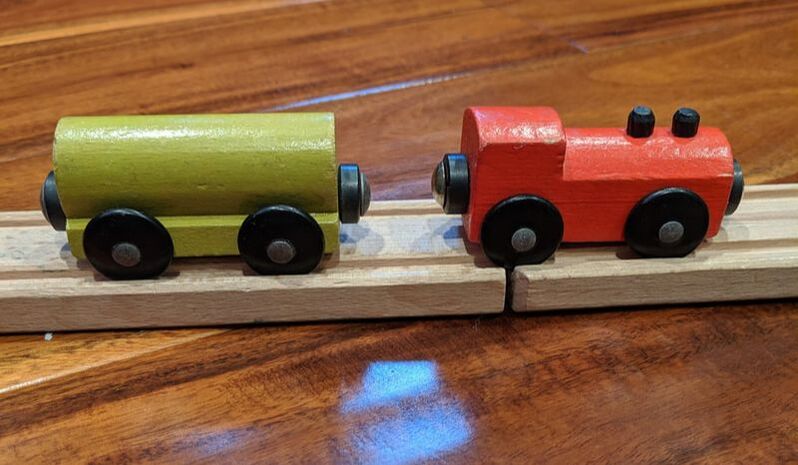
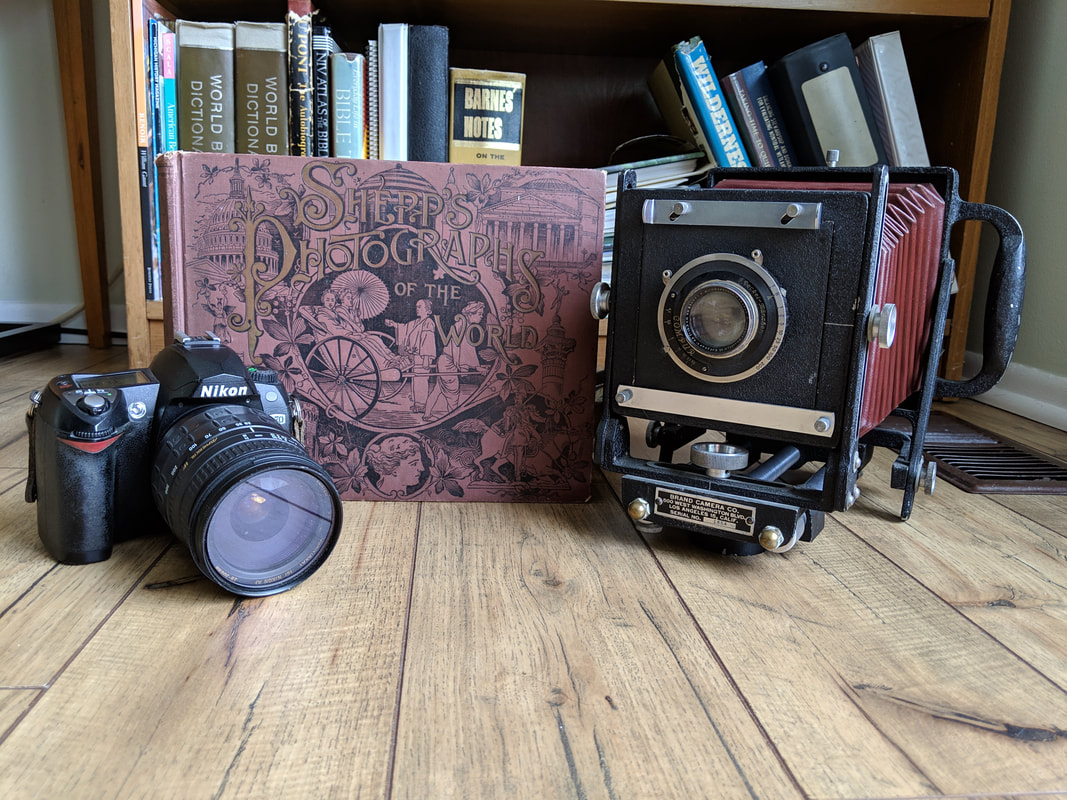
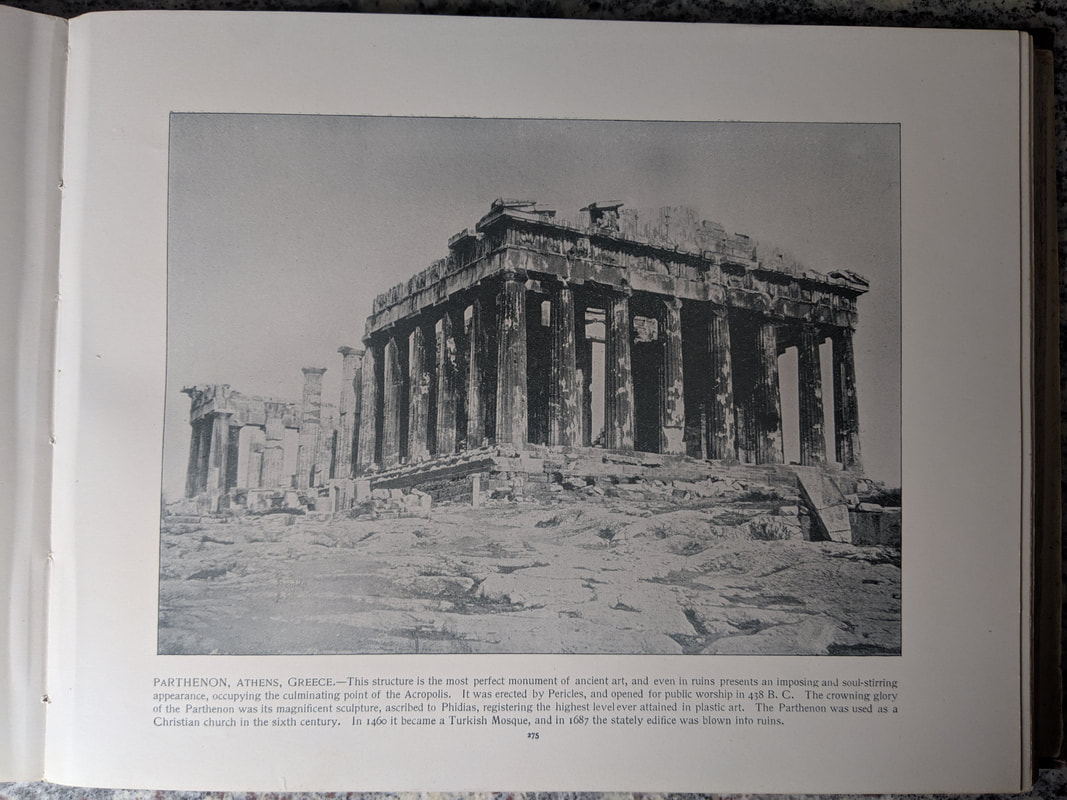
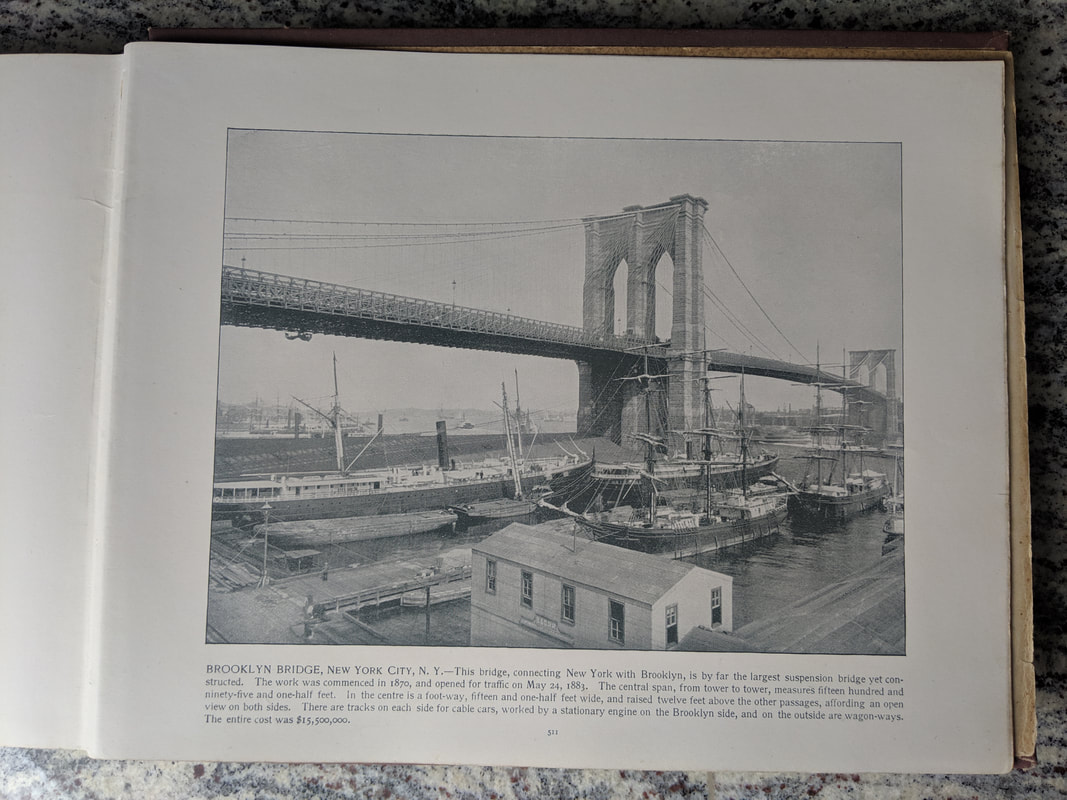
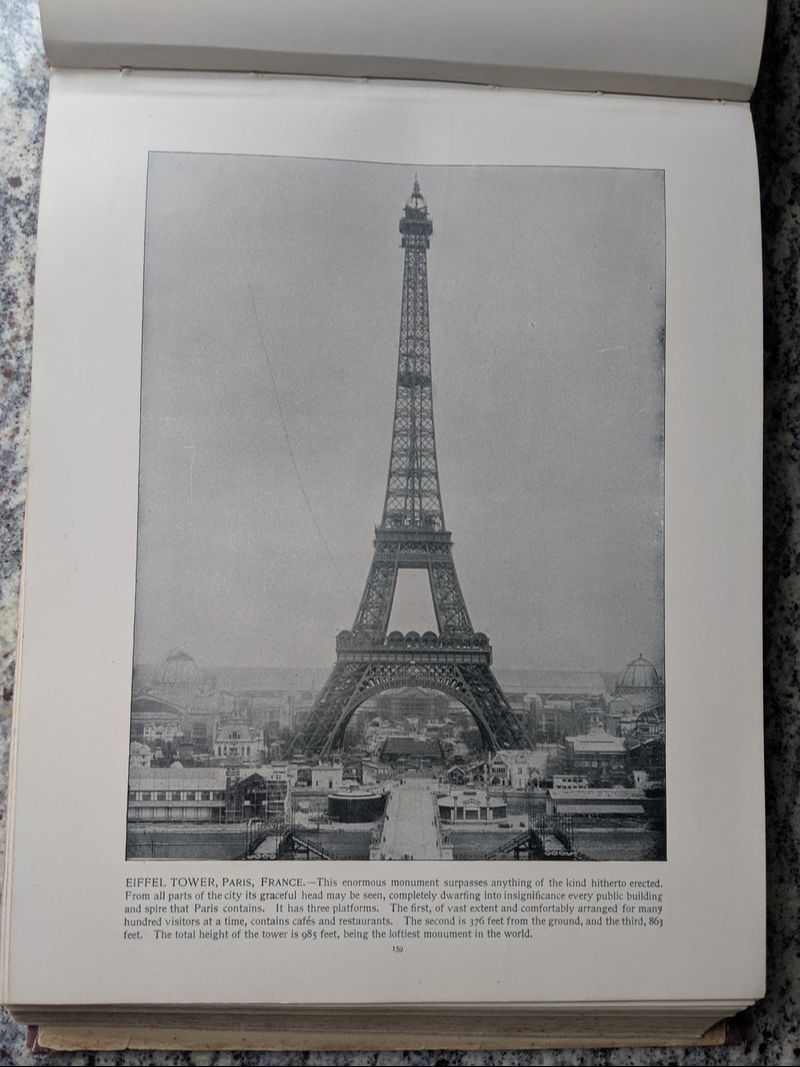
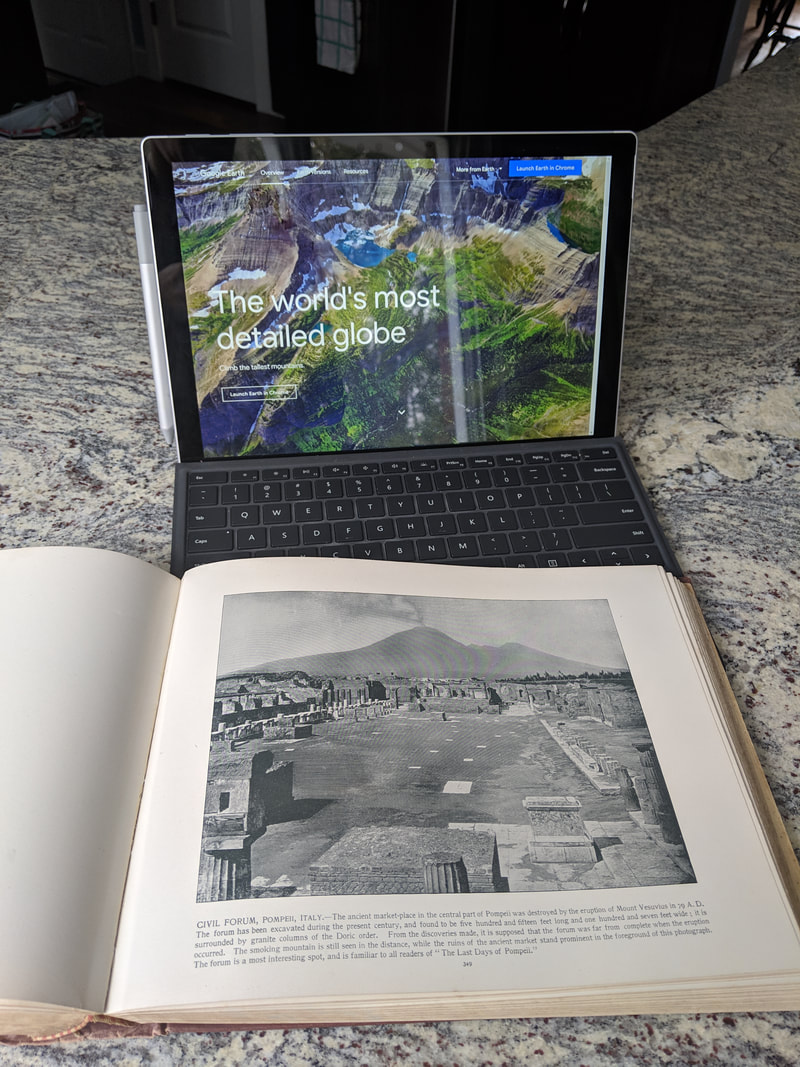

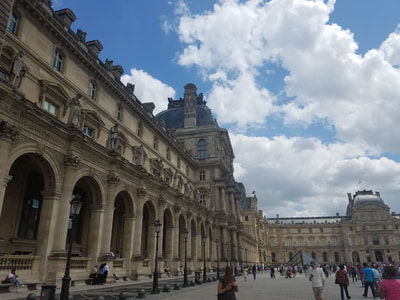
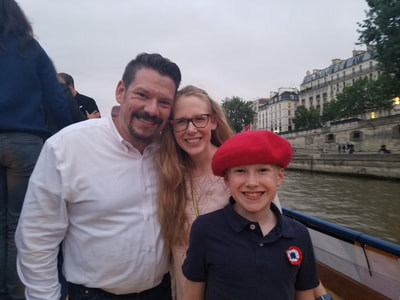
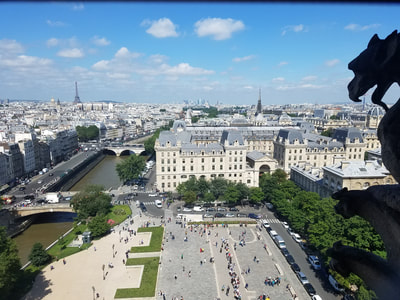

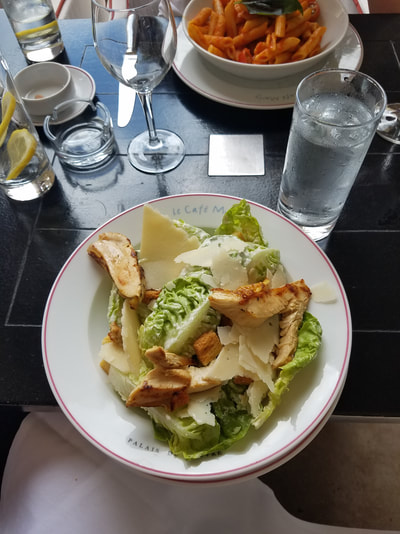
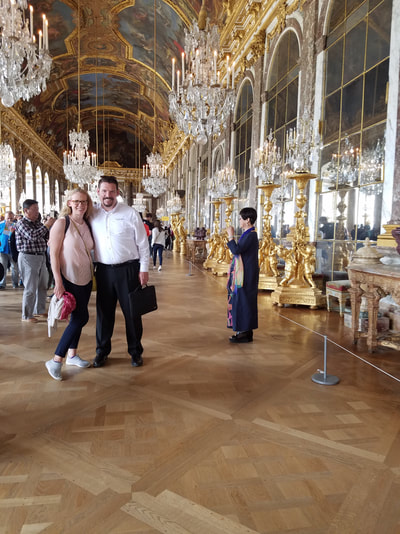
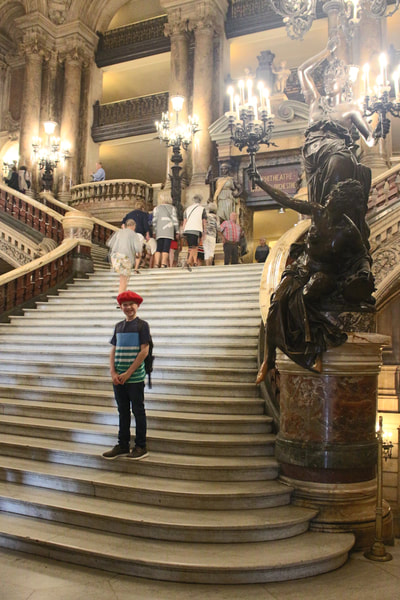
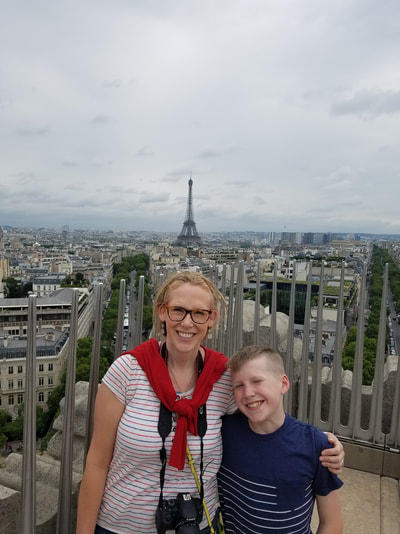
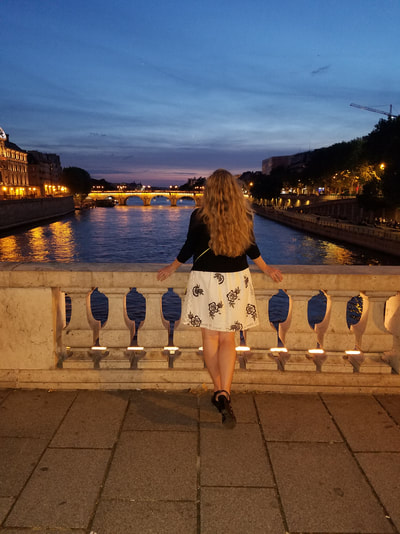
 RSS Feed
RSS Feed